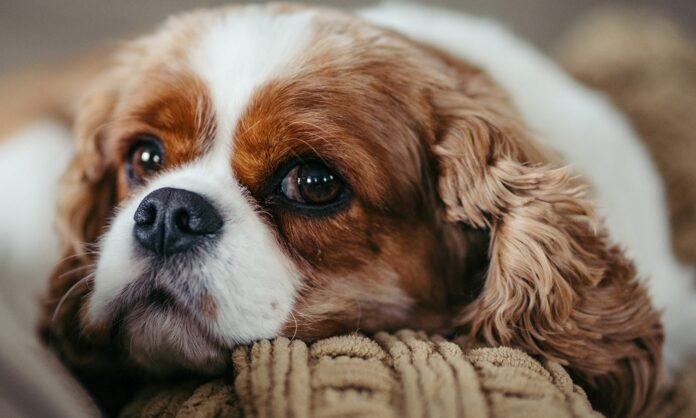Anxiety symptoms might range from a worried heart flutter to a full-fledged panic attack. Anxiety is one of the many ways dogs are similar to their pet owners. Their anxiousness, like ours, is usually nothing to be concerned about.
Continue reading to learn everything you need to know about dog anxiety and how to help your pup overcome it.
Contents
What is Anxiety in Dogs?
Anxiety is defined as being scared or concerned about something. It’s a normal emotion that helps us recognize danger, but it may also be harmful in other situations. Dogs are pack animals who consider their human family members to be members of their group.
They feel comfortable when they are surrounded by people, therefore it is not surprising that they experience fear when they are left alone. This is known as separation anxiety, and it is one of the most common types of anxiety in dogs.
Our dogs perform best when they know what to expect. As a result, anxiety may arise if they are confronted with a large shift in their surroundings or too many changes at once.
Causes of Anxiety in Dogs
Some dogs have a generally placid demeanor and will be less affected by specific situations than other canines. However, there are several typical reasons for anxiety in dogs. Keep in mind that your pet’s anxiousness might be caused by a combination of factors.
Thunder
Many dogs feel agitated when they hear loud noises such as thunder. Dogs, interestingly, can detect a drop in barometric pressure and may disappear when a storm is approaching. In this situation, you might find your dog hiding in the bathtub or under a bed. Other loud noises, such as fireworks, will elicit the same reaction.
Crowds
For your dog, being in a crowd might be stressful. This is because they have no idea what to expect in this situation. Crowds may be both loud and constraining. This is an unusual setting in which anything might happen, from your dog’s perspective. Your dog may be concerned about being apart from you.
Read More: Helpful Tips for Walking Your Dog
Social
Is your dog nervous when he or she meets new people or other dogs? A traumatic experience in their history may be influencing their conduct.
Perhaps your dog was rescued and the full story of its life is unknown. Canines who have not been properly socialized may experience anxiety around other dogs and humans. They are frequently unaccustomed to being with anyone other than their family members.
Traveling
Despite the photos, you see of dogs enjoying the breeze with their heads out the car window, not all dogs like car rides. It may cause anxiety in some dogs since they don’t know where they’re going – it could be a visit to the vet to the boarding kennel.
Perhaps they’ve had a bad experience such as being confined in an uncomfortable space in the vehicle or arriving at a destination that caused them anxiety.
Dog Anxiety Symptoms
Each dog is unique, and they are likely to exhibit a variety of anxiety symptoms. You may also notice a combination of the following indicators.
Furthermore, some forms of anxiety are more severe than others. Furthermore, symptoms that emerge just once or twice may indicate that Rover or Rosie did not have enough exercise or cerebral stimulation that day.
If the actions persist or progress to greater destruction or hostility, you are most certainly dealing with an anxiety problem that needs to be addressed. Furthermore, you don’t want your pet to damage themselves or others as a result of their behaviors.
List of dog anxiety symptoms:
- Aggression
- Barking
- Compulsive behavior
- Depression
- Destroying things
- Drooling excessively
- Pacing
- Refusing food
- Restlessness
- Tail tucked in
- Whining
Treatment Options for Dog Anxiety
Before you begin any therapy, it’s a good idea to rule out the potential that your dog’s symptoms are caused by an underlying medical condition. Enlist the help of your veterinarian to ensure that your dog is in good health.
This may involve drugs as well as some of the suggestions listed below. The most effective courses of action will include a variety of techniques aimed at helping your dog to relax. Here are some suggestions from your veterinarian.




















